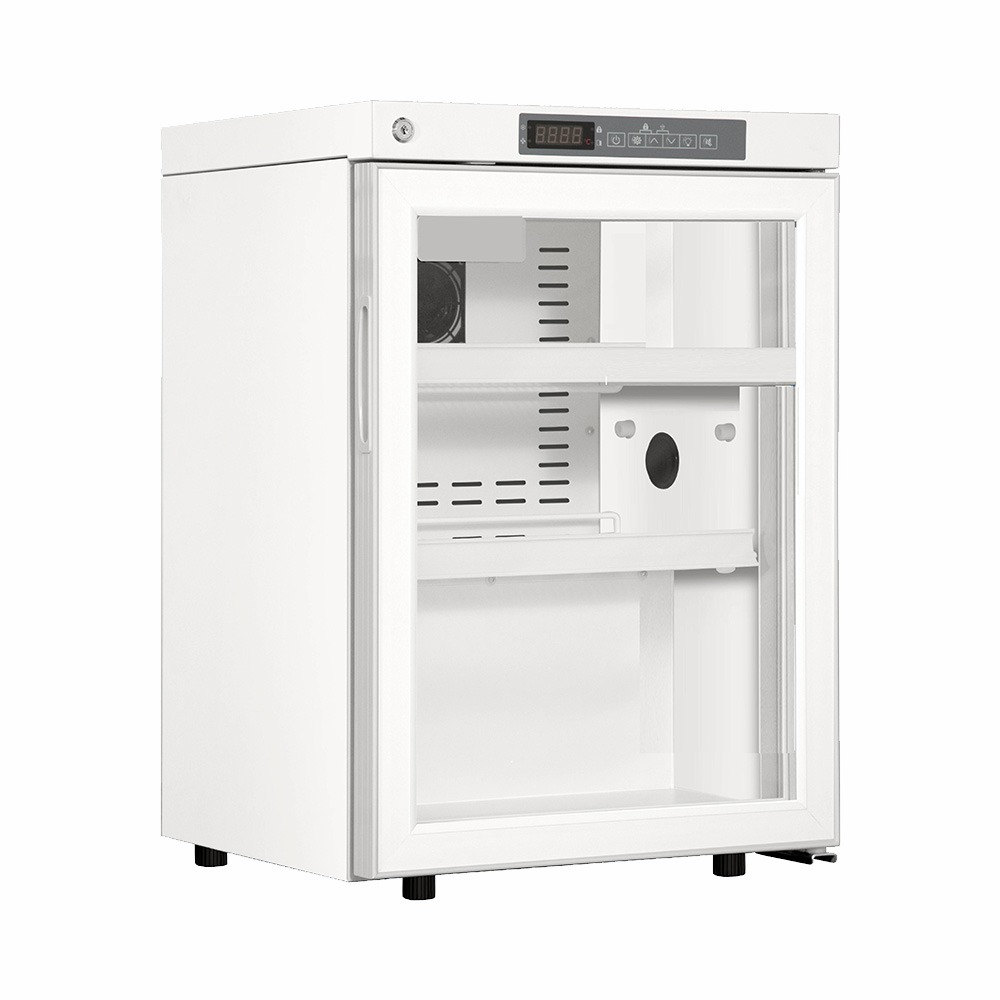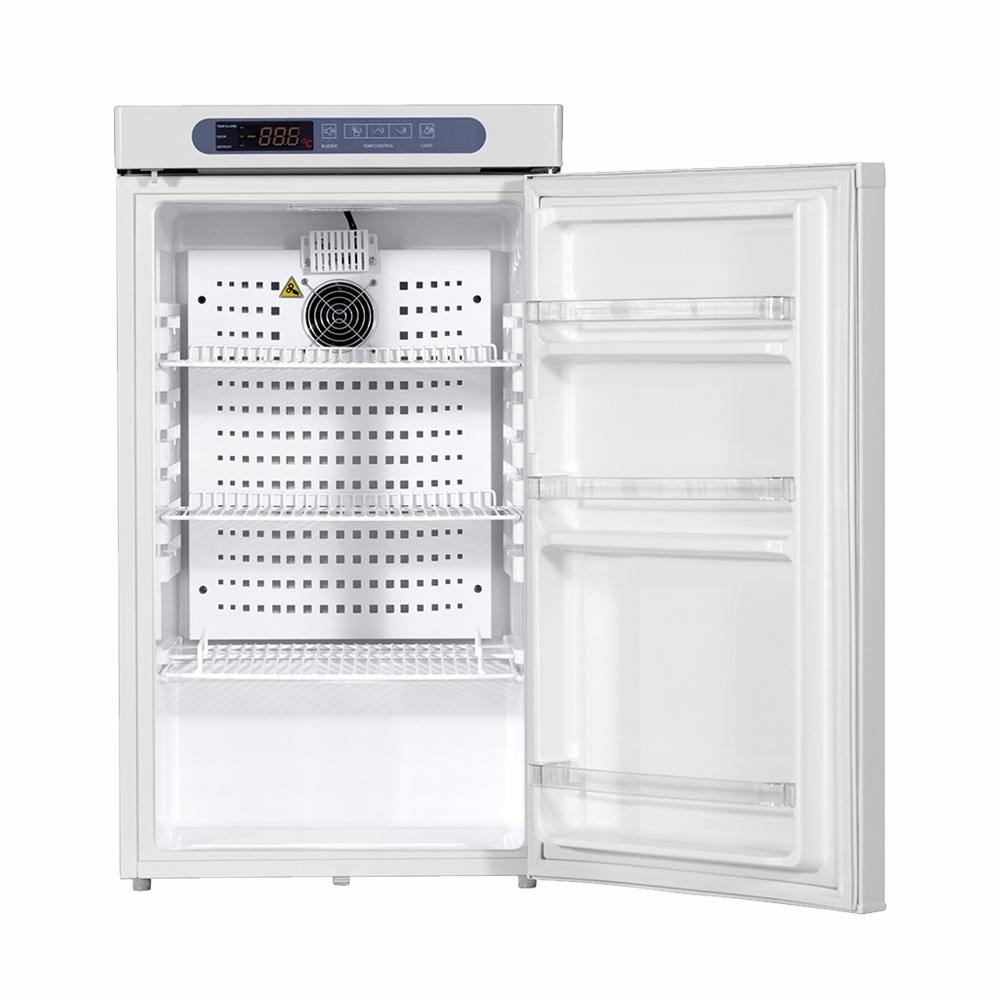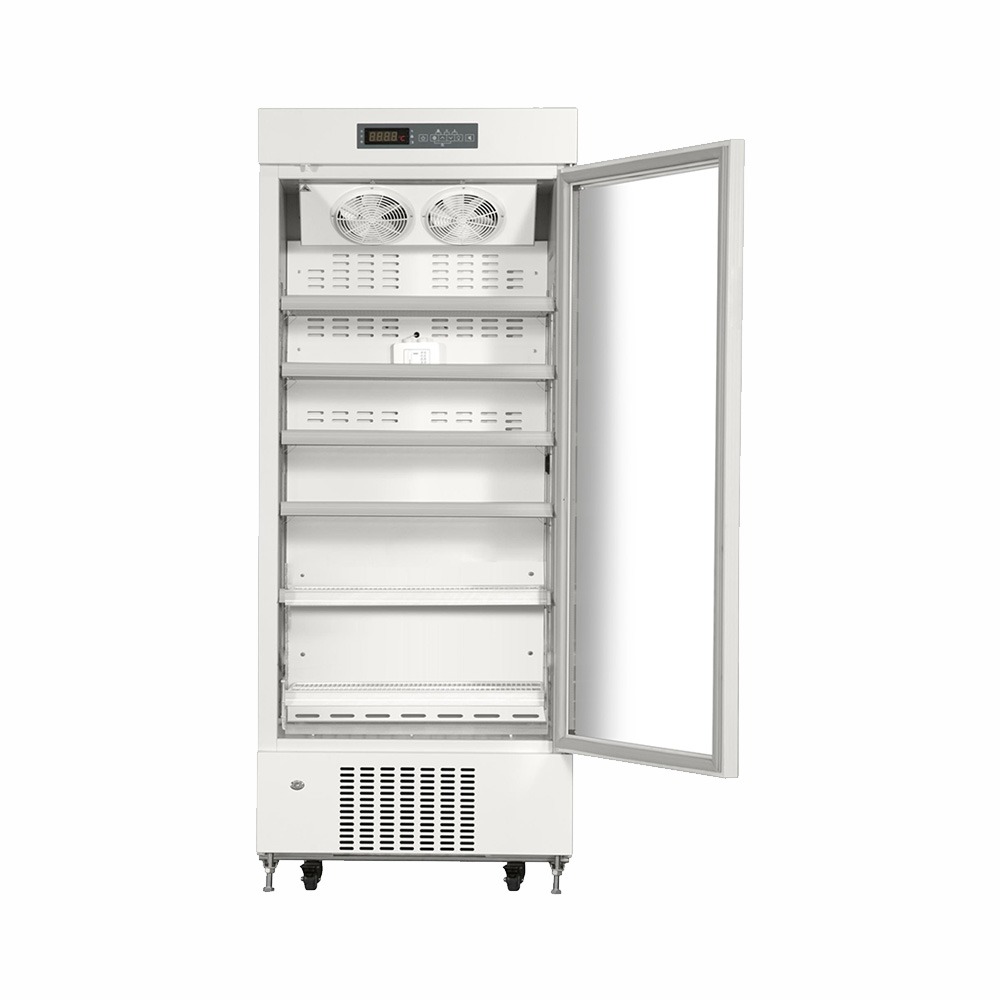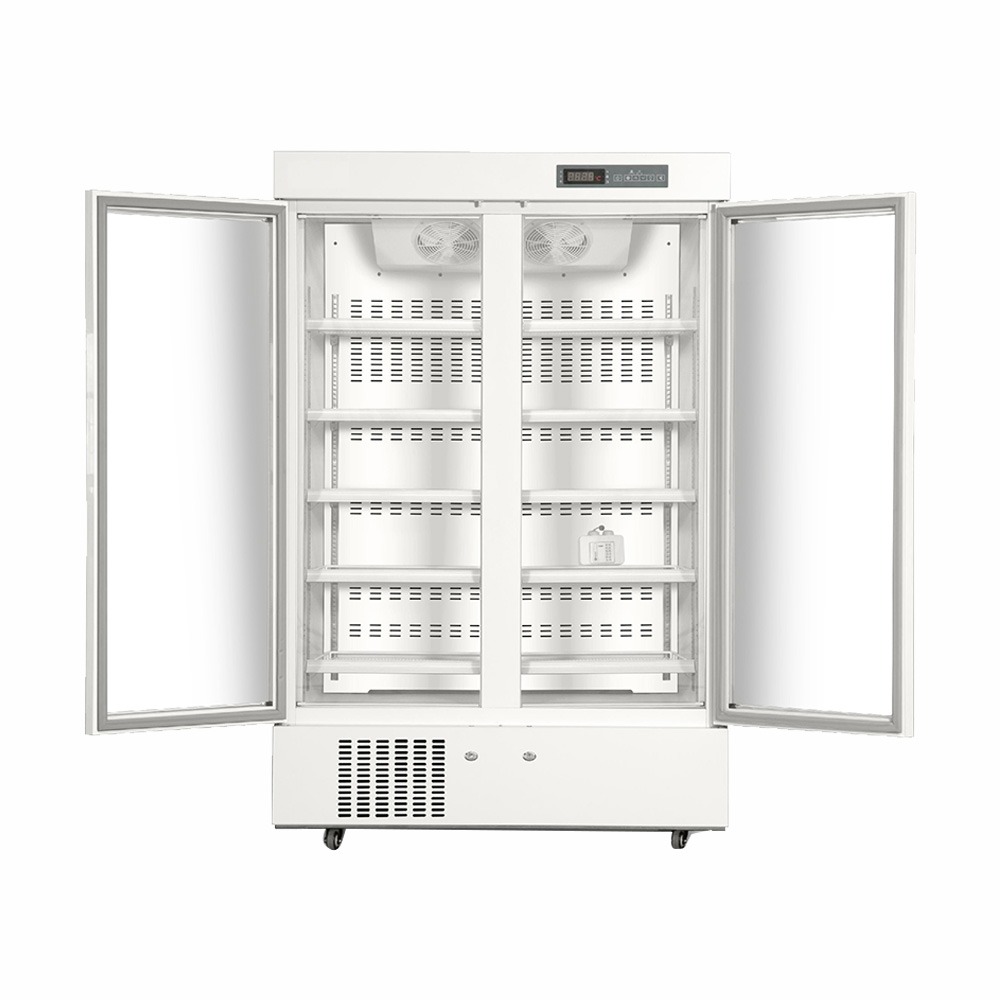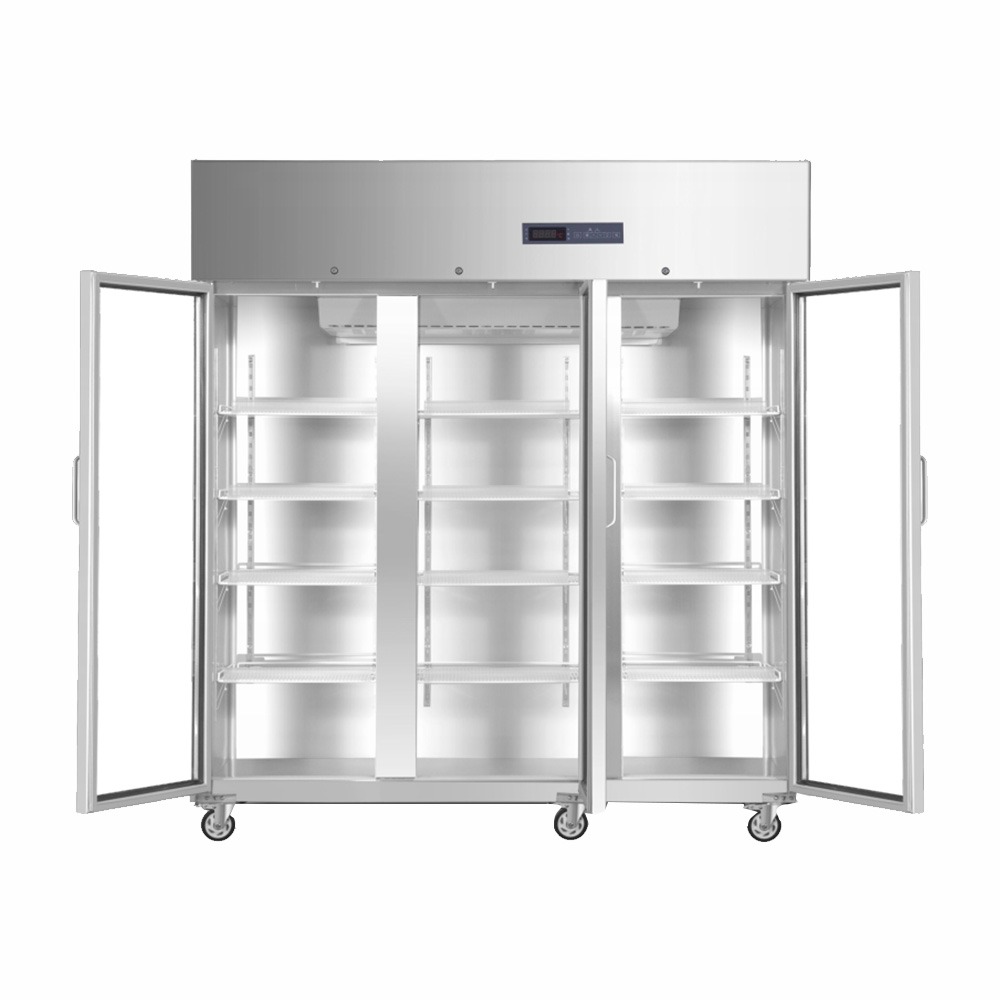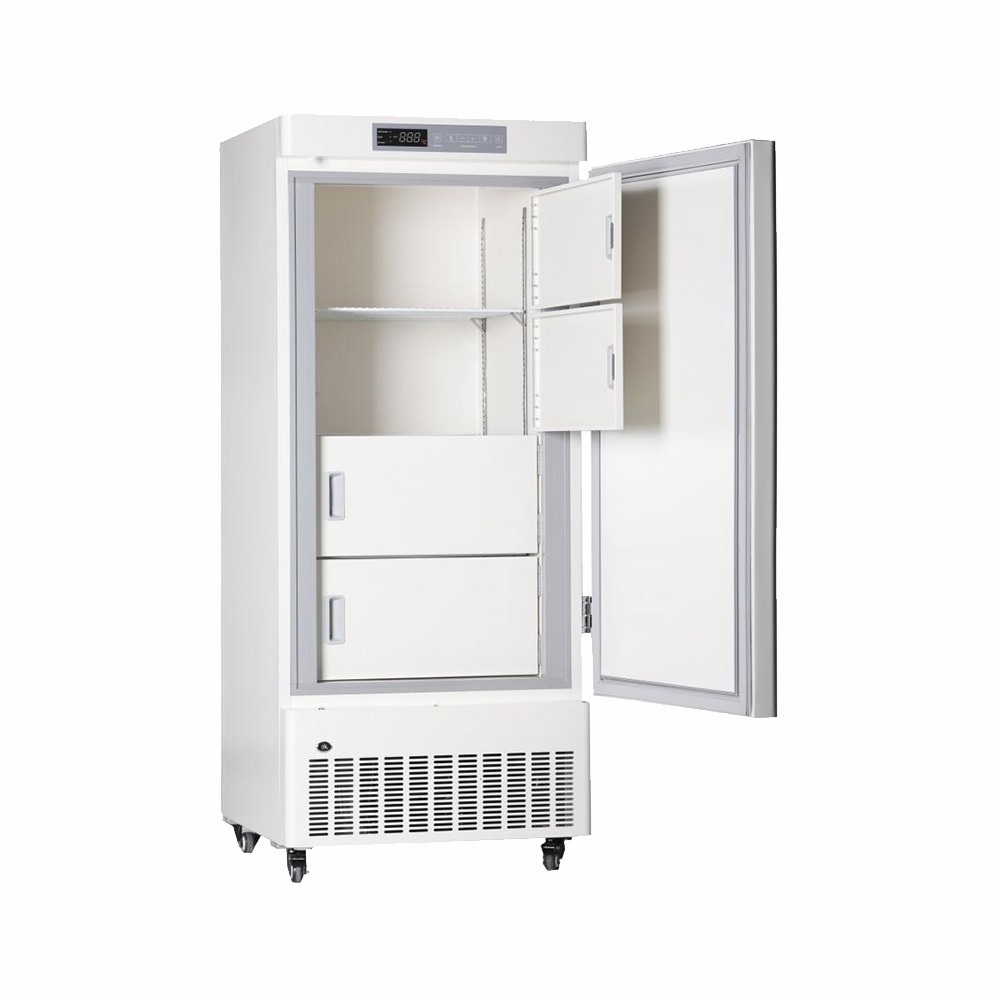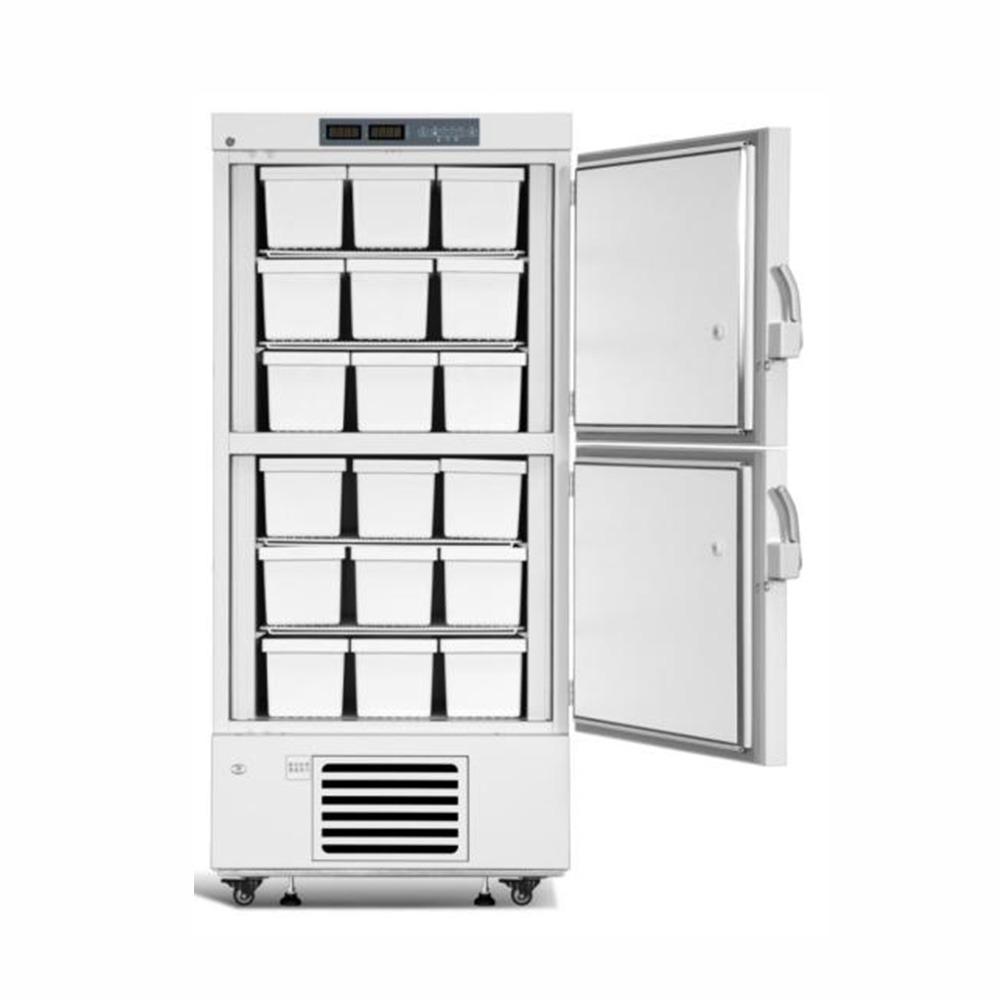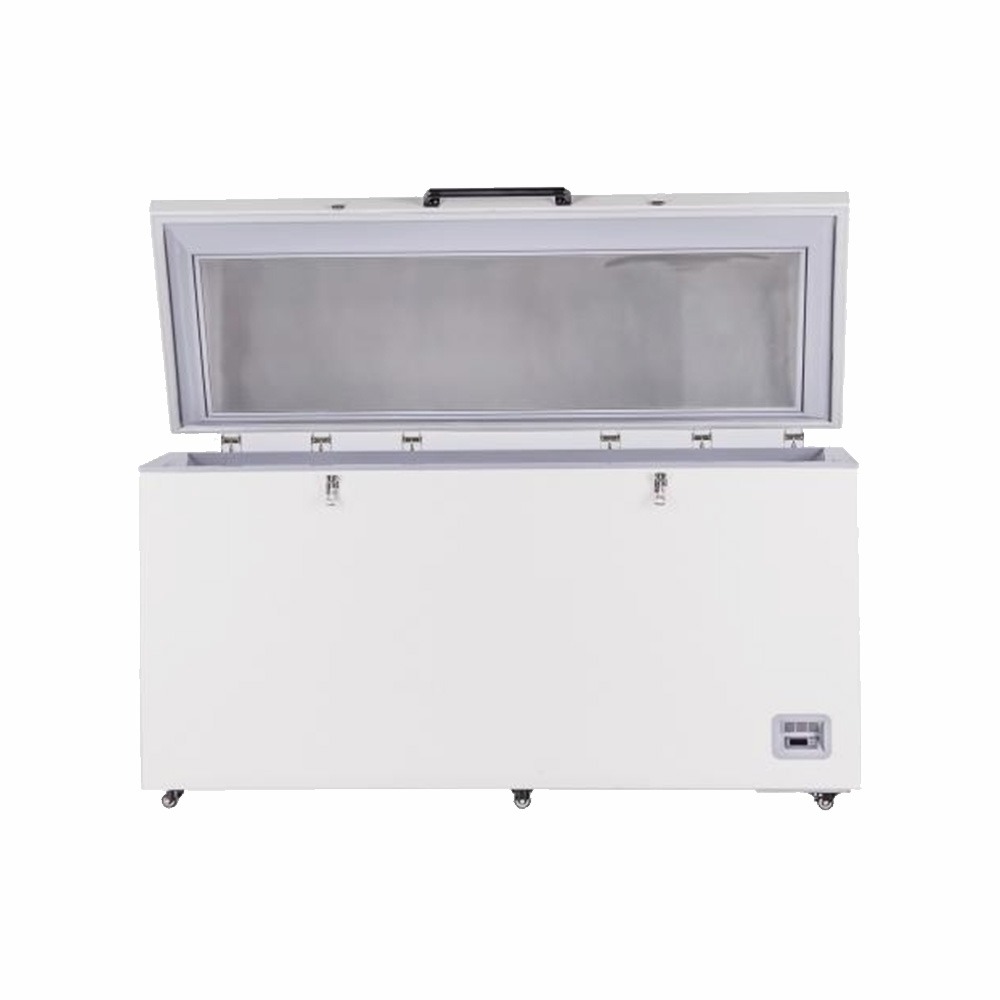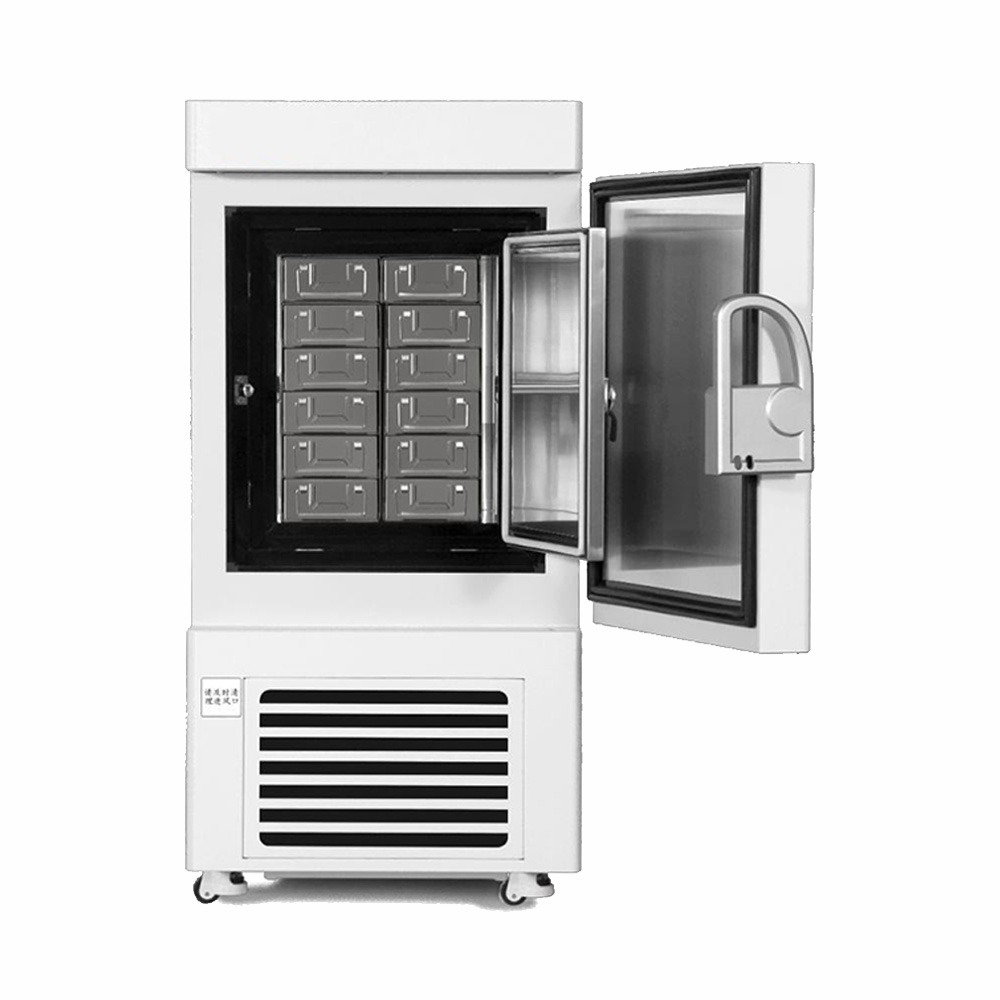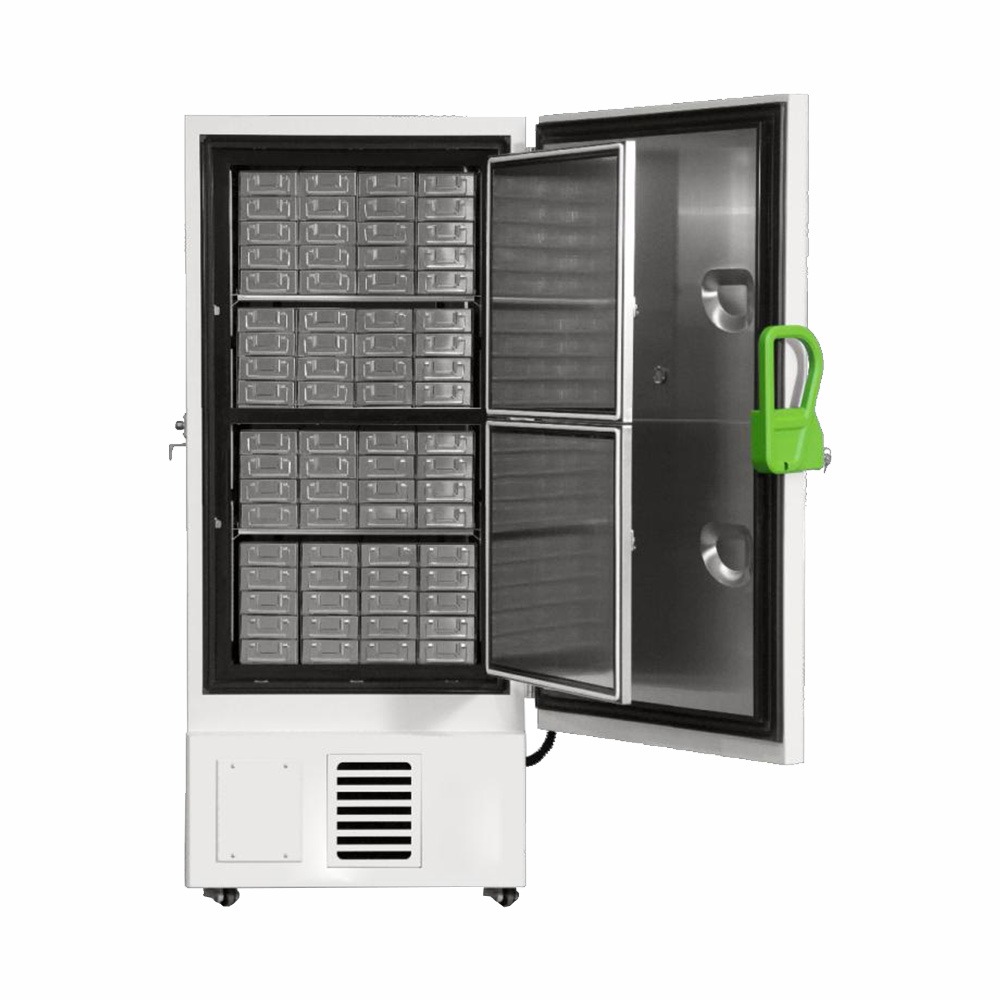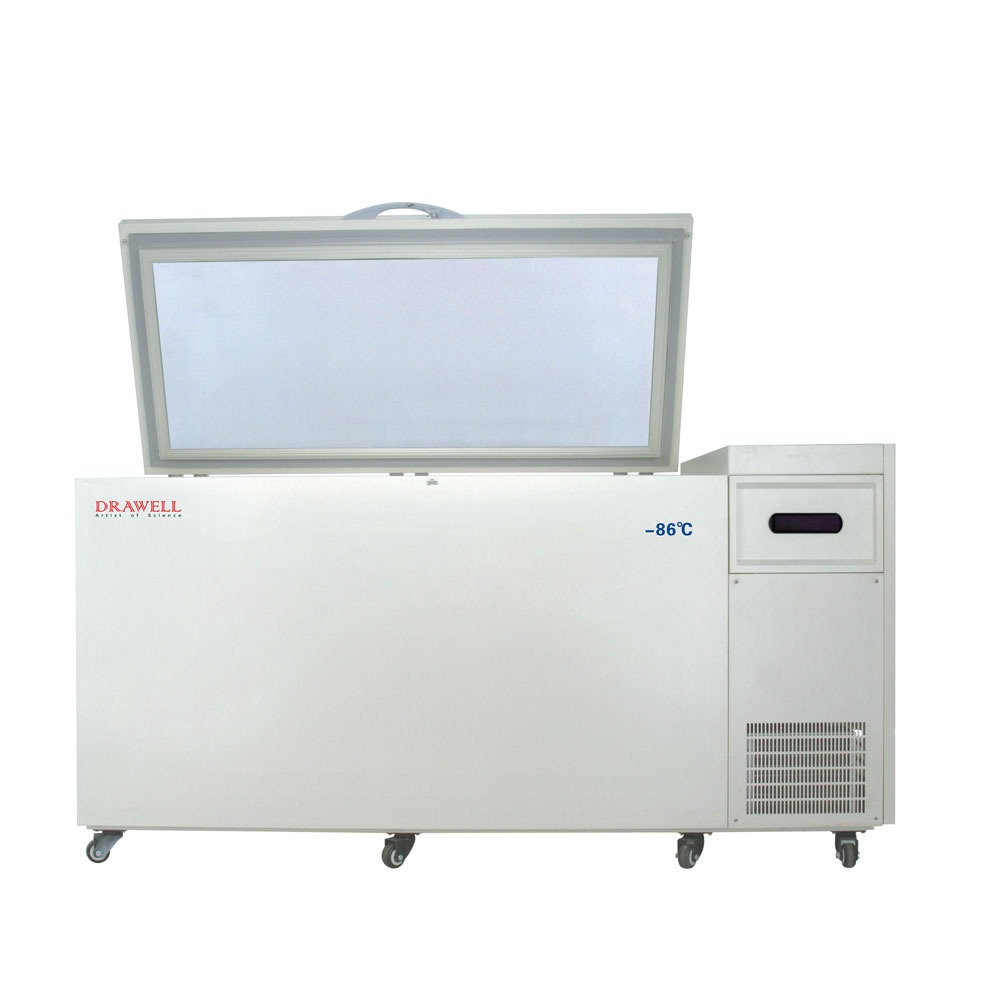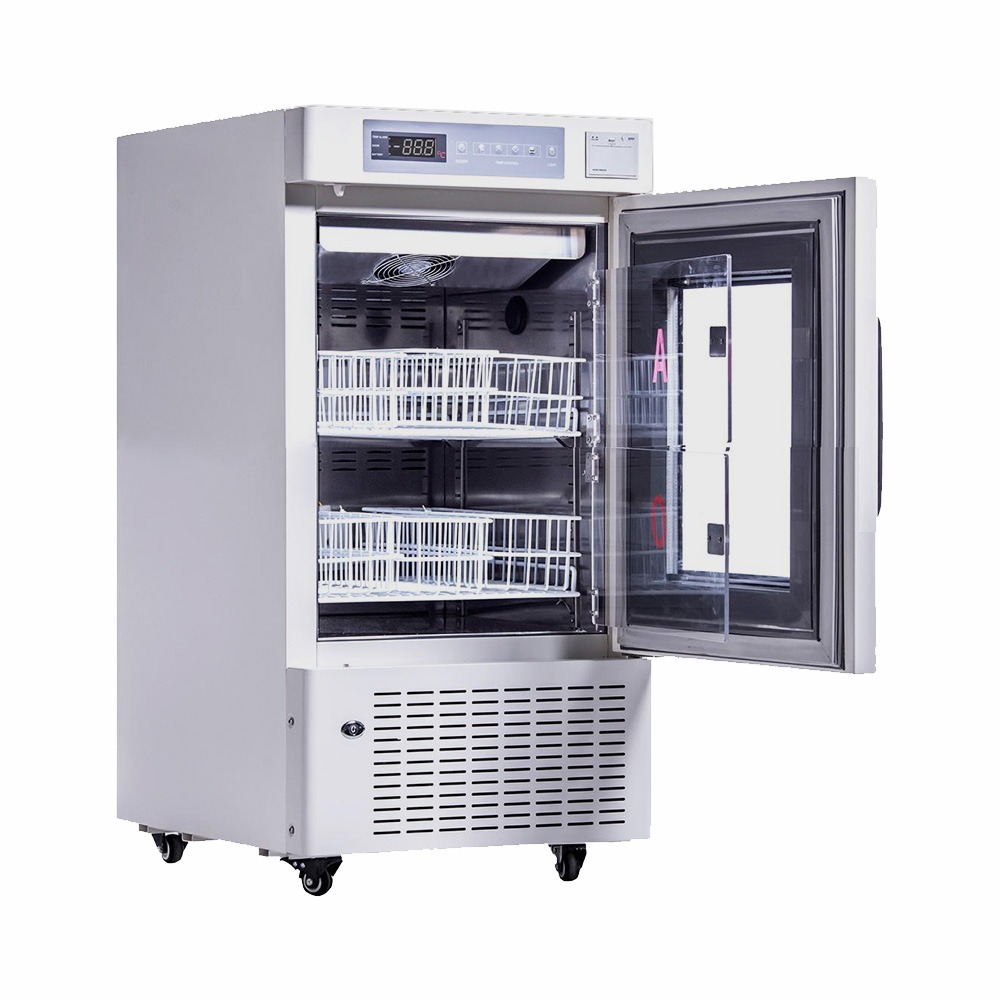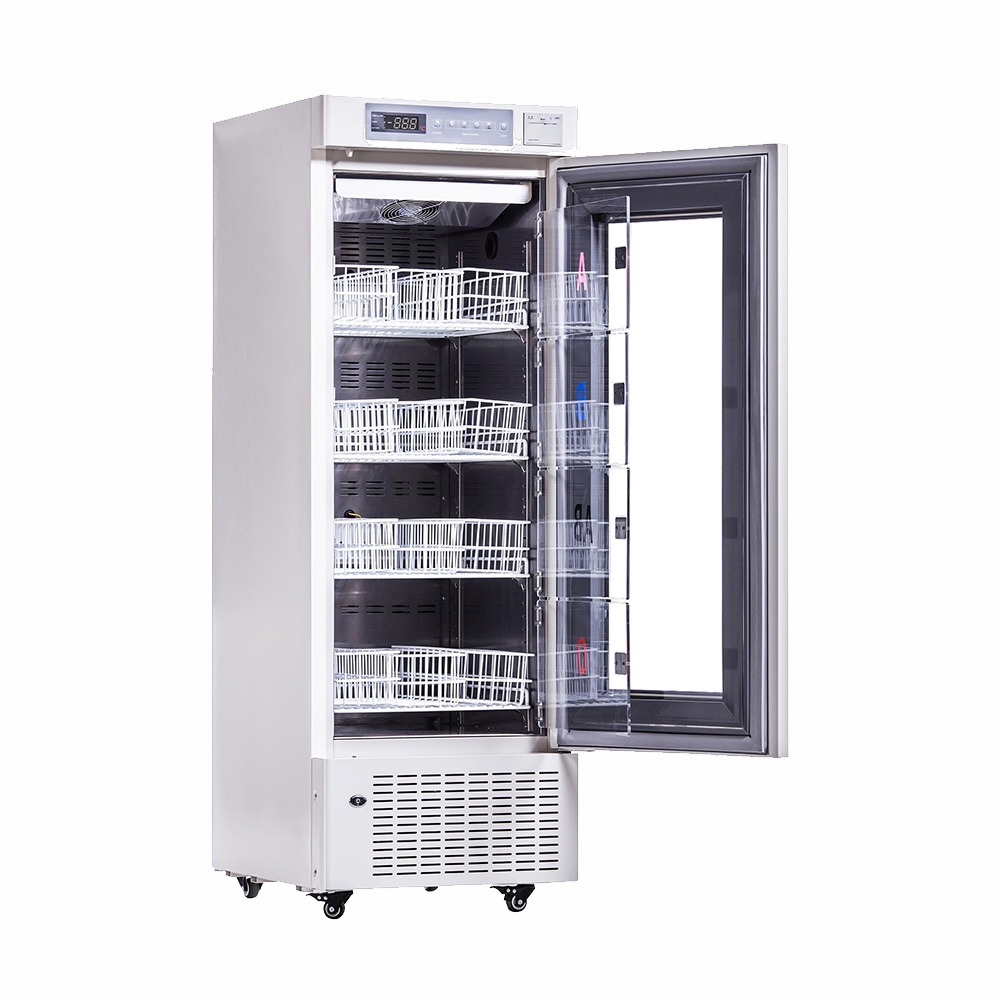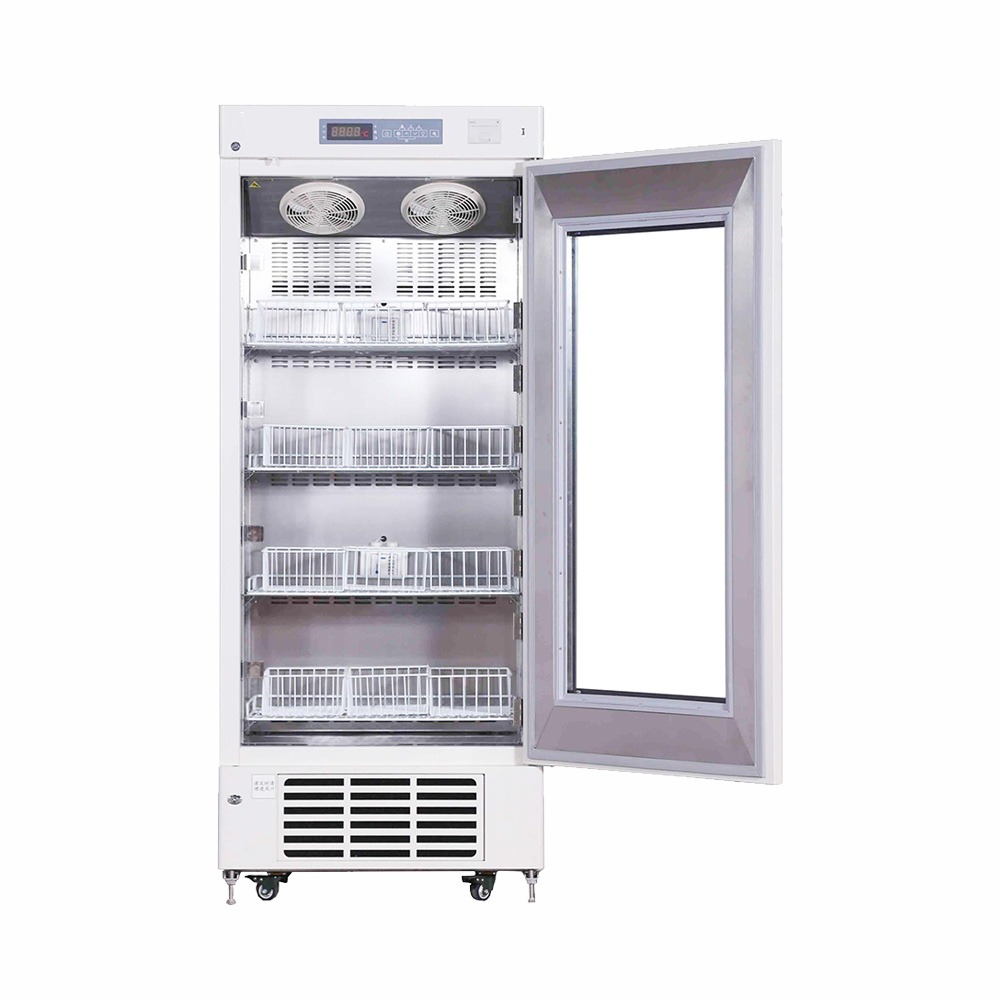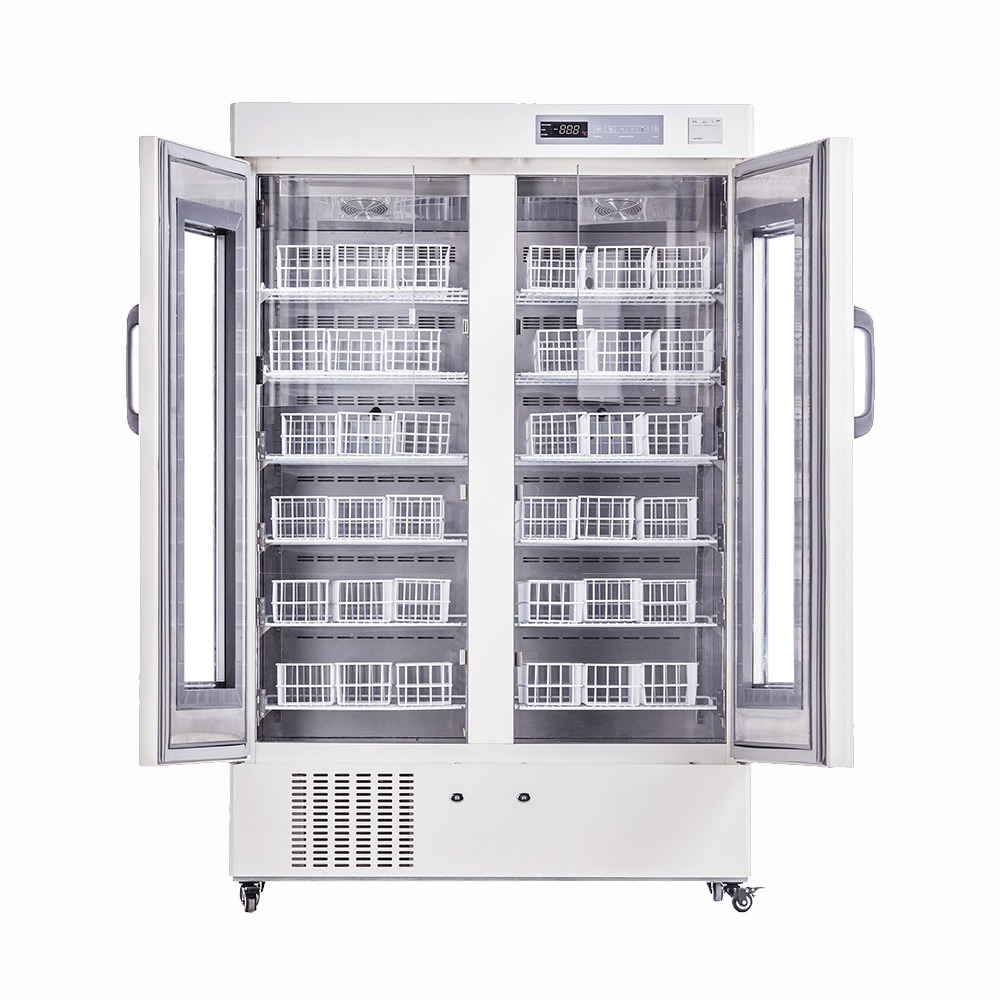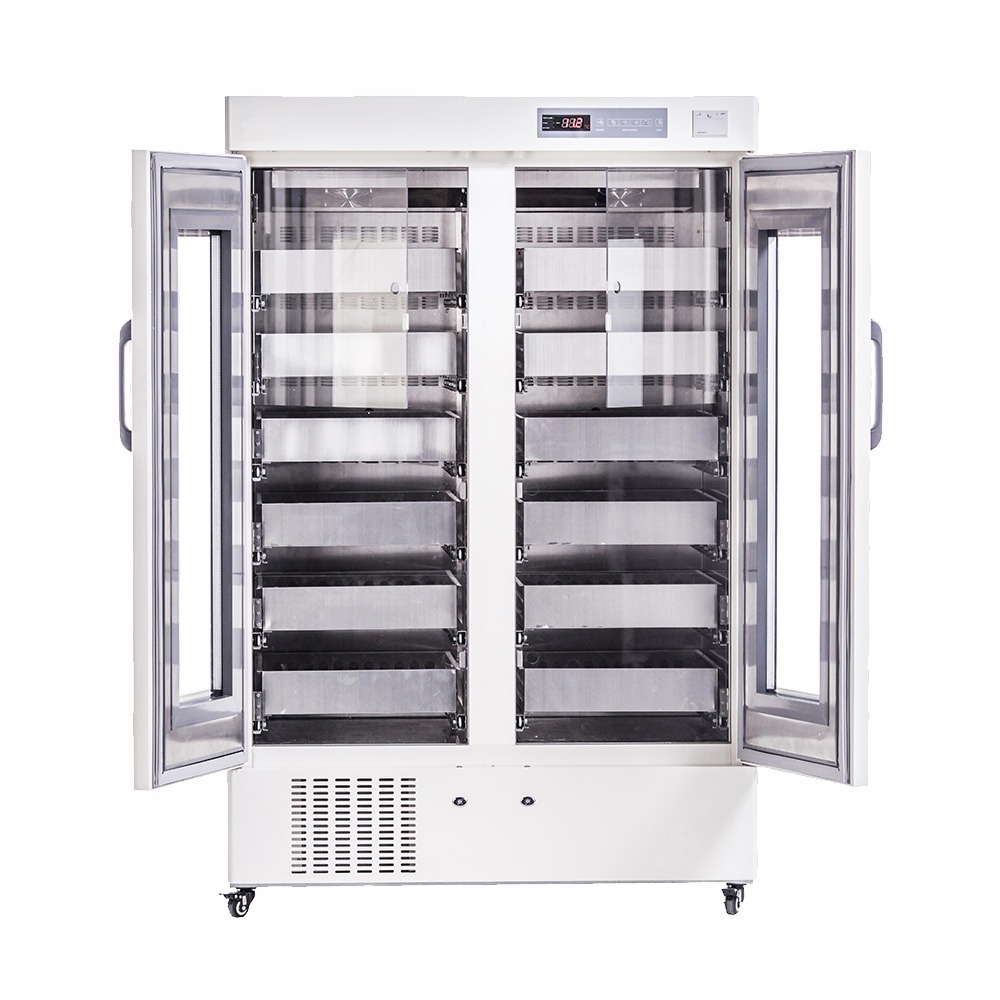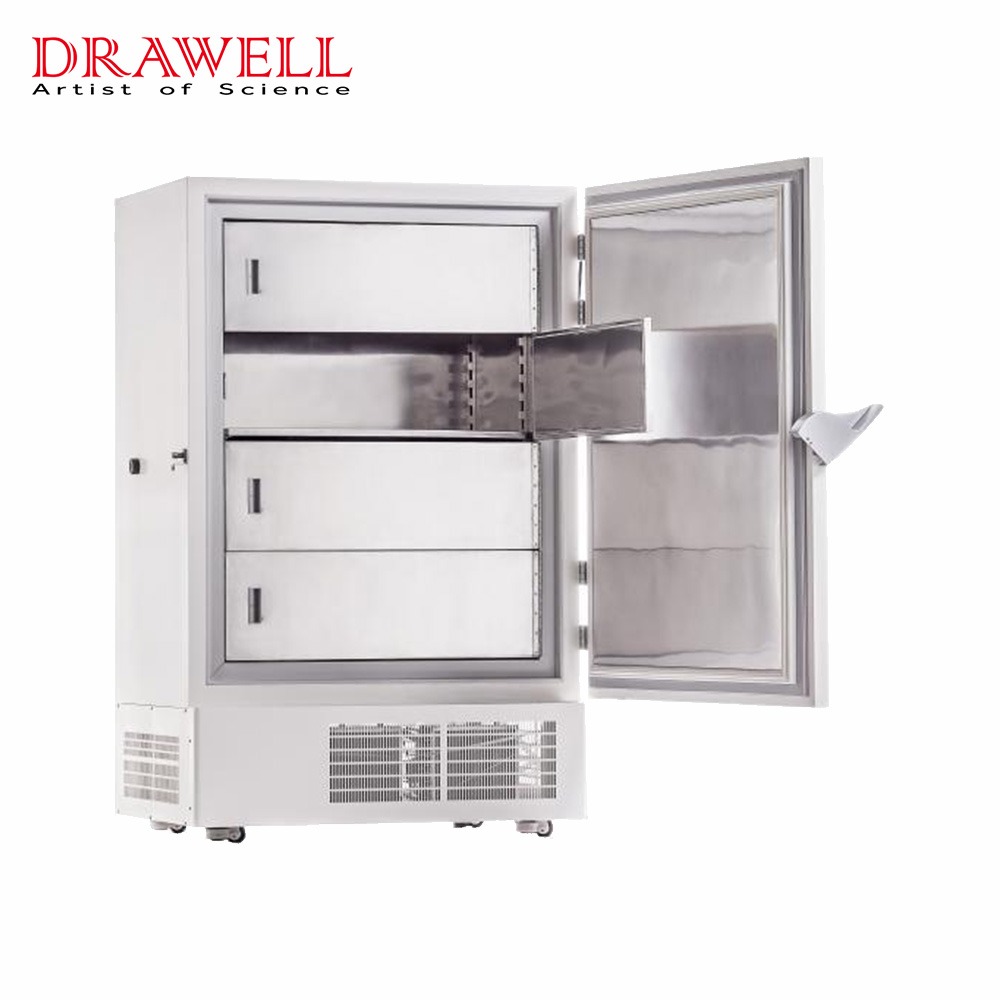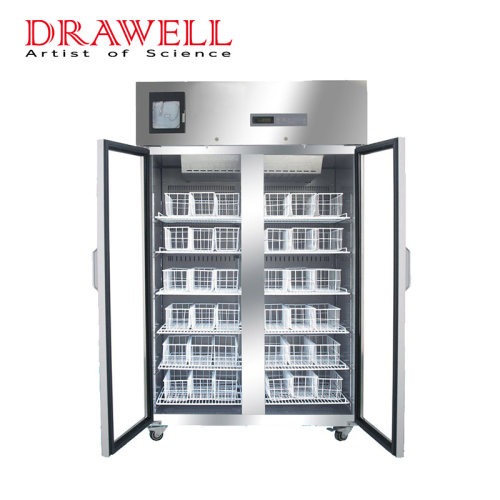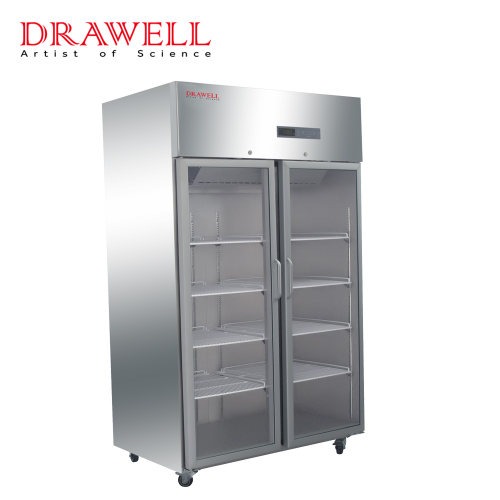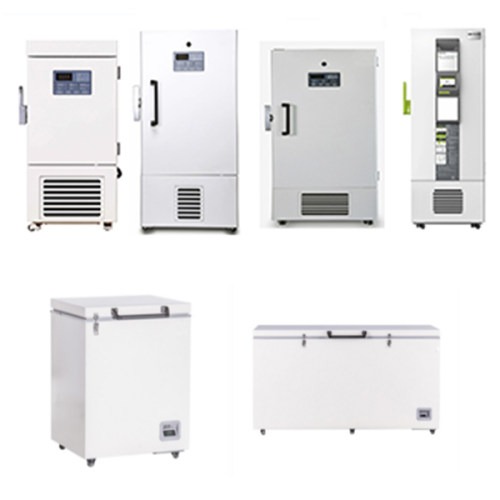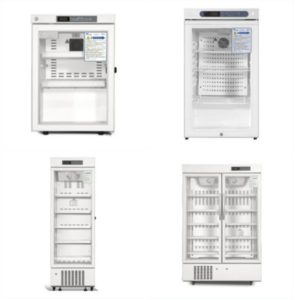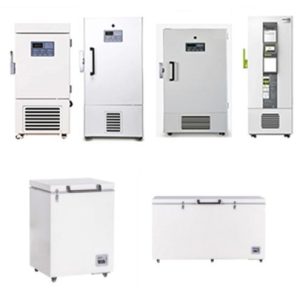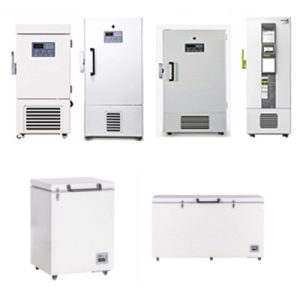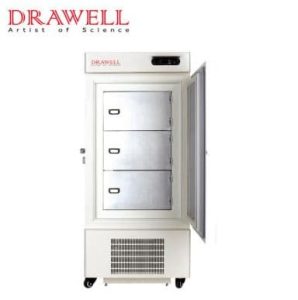Laboratory refrigerators are designed to provide exact temperature control and dependable storage for perishable materials such as sensitive samples, reagents, and other perishable items.
Definition of Laboratory Refrigerators
Laboratory refrigerators, also called laboratory freezers, are specialized refrigeration units used in scientific, medical, and research contexts to retain perishable products such as sensitive samples, reagents, vaccinations, and medications. These refrigerators are built with exact temperature control in mind, frequently ranging from 2 to 8 degrees Celsius, and may include features such as digital temperature display and control, alarms, energy-efficient technology, safety measures, robust construction, and regulatory compliance. Laboratory refrigerators are essential for preserving the integrity and viability of stored materials, as well as assuring their safety and contributing to correct experimental results and research outcomes in laboratory settings.
Types of Laboratory Refrigerators
When purchasing a laboratory refrigerator, it is critical to thoroughly analyze your laboratory’s individual storage demands and requirements in order to maintain optimal performance and sample integrity.
- General-Purpose Laboratory Refrigerators
These are the most common types of lab freezers and are used for the general storage of samples, reagents, vaccinations, and other perishable products. They typically provide a temperature range of 2 to 8 degrees Celsius and are available in a variety of sizes and capacities.
- Flammable Material Storage Refrigerators
These freezers are created with spark-free interiors and specialized ventilation systems to prevent the risk of fire and explosions when storing combustible goods such as chemicals or solvents.
- Explosion-Proof Refrigerators
These lab refrigerators are intended for usage in potentially explosive situations, such as laboratories that handle volatile or explosive compounds. They have spark-free interiors, explosion-proof components, and safety features to reduce the risk of igniting.
- Pharmacy/Vaccine Refrigerators
In conformity with regulatory criteria, these refrigerators are specifically built for keeping vaccines, pharmaceuticals, and other temperature-sensitive medications. They frequently have accurate temperature control, alarm systems, and backup power supply to provide continuous temperature monitoring and storage in the event of a power outage.
- Ultra-Low Temperature (ULT) Freezers
These ultra-low-temperature freezers are specialized laboratory freezers capable of reaching extremely low temperatures ranging from -40 °C to -86 °C. They are used for the long-term preservation of temperature-sensitive items such as biological specimens, enzymes, and other materials.
- Blood Bank Refrigerators
These blood blank refrigerators are intended for the safe storage of blood and blood products such as whole blood, plasma, and other blood components in compliance with blood banking requirements. They are frequently equipped with precise temperature control, alarm systems, and specialized compartments for blood bag storage.
- Chromatography Refrigerators
These freezers are built exclusively for the storage of chromatography columns, which are used in analytical chemistry and other laboratory applications. They frequently have accurate temperature control, adjustable shelves or racks, and specialized chromatography column storage designs.
Maintenance and Best Practices of Laboratory Refrigerators
Maintenance and best practices for laboratory refrigerators are important to ensure optimal performance, extend their lifespan, and maintain the integrity of stored samples.
- Regular Temperature Monitoring
It is critical to monitor the temperature inside the laboratory refrigerator on a frequent basis with a calibrated thermometer or a temperature monitoring system. This ensures that the refrigerator keeps the correct temperature range for storing the samples. Any temperature fluctuations should be addressed immediately to avoid potential sample damage.
- Proper Cleaning
Regular cleaning of the interior and exterior of the laboratory refrigerator is necessary to prevent the accumulation of dirt, debris, or pollutants that can impair the refrigerator’s performance and jeopardize the integrity of stored samples. Use gentle cleaning products and avoid abrasive chemicals that can scratch the surfaces of the refrigerator.
- Proper Storage Organization
Proper sample organization inside the laboratory refrigerator is critical for optimizing storage space, preventing cross-contamination, and ensuring simple sample retrieval. Use proper storage containers and racks, clearly identify samples, and minimize overcrowding or obstructing air vents inside the refrigerator.
- Avoiding Overloading
Avoid overloading the laboratory refrigerator with samples or materials that exceed its recommended capacity. Overloading the refrigerator’s cooling system might strain it, diminish its performance, and jeopardize temperature stability.
- Regular Defrosting
If your lab freezer is not frost-free, it may need to be defrosted on a regular basis to prevent ice buildup, which can impair chilling effectiveness. If applicable, defrost and clean the freezer compartment according to the manufacturer’s instructions.
- Door Management
Temperature changes inside the laboratory freezer can be avoided with proper door management. To preserve temperature stability, avoid frequent and extended door openings and make sure the door is properly closed and sealed after each usage.
- Regular Maintenance Checks
Schedule regular maintenance inspections by qualified experts according to the manufacturer’s recommendations. This may include evaluating and calibrating temperature sensors, testing the cooling system’s effectiveness, inspecting gaskets and door seals, and cleaning condenser coils.
- Power Outage Preparedness
Prepare for power disruptions by installing backup power sources such as uninterruptible power supply (UPS) units or backup generators. Also, to help maintain temperature stability during a power outage, limit the duration of door openings.
- Compliance with the Manufacturer’s Recommendations
In the user handbook, follow the manufacturer’s guidelines for operation, maintenance, and safety precautions. Temperature settings, loading capacity, cleaning methods, and any other special instructions for your laboratory refrigerator model are all included.
Summary
Laboratory refrigerators are commonly used in scientific, medical, and research contexts to precisely maintain sensitive samples, reagents, vaccines, medications, and other perishable products. They are critical for preserving the integrity and viability of stored samples, hence ensuring their safety.
Related Products
Get Quote Here!
Latest Posts
What Next?
For more information, or to arrange an equipment demonstration, please visit our dedicated Product Homepage or contact one of our Product Managers.

